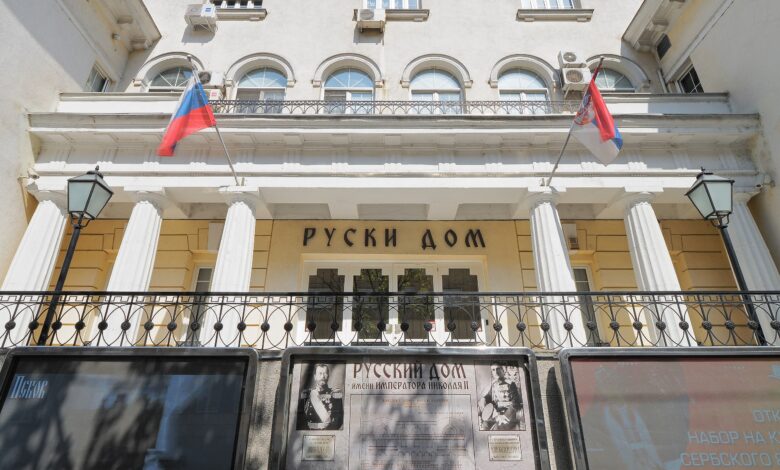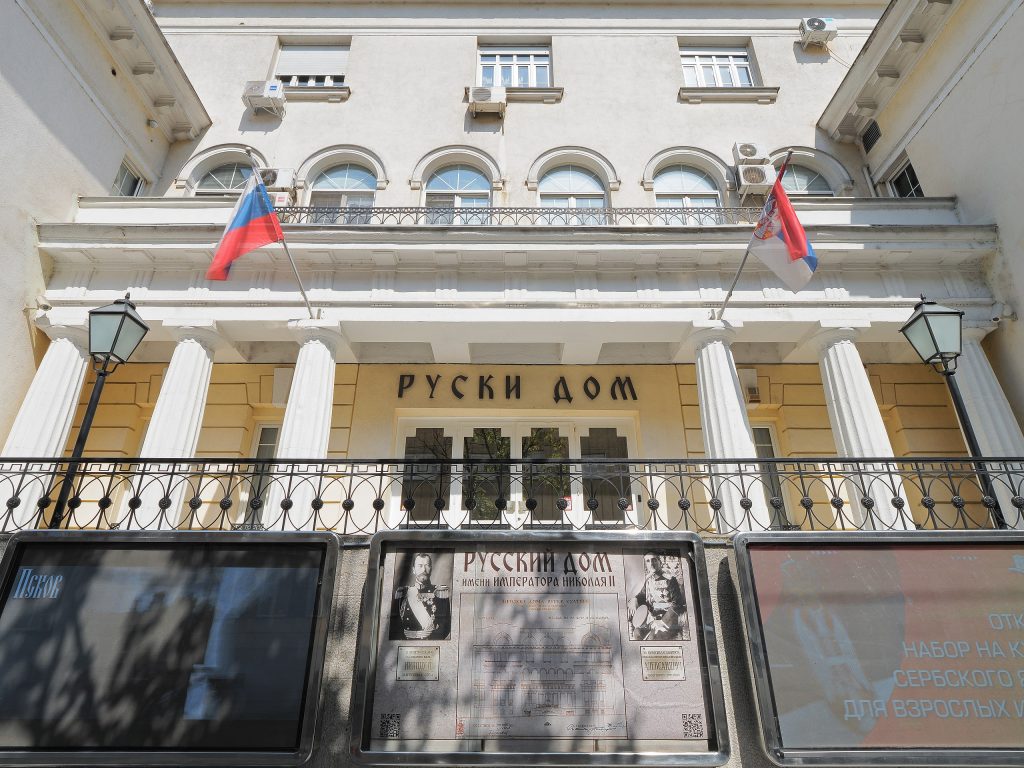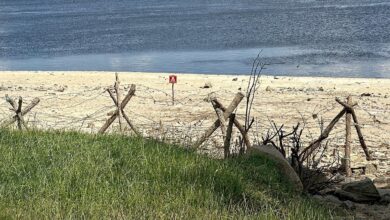
[ad_1]
It is commonly said that the Russian aggression against Ukraine has further exposed the fault lines between Moscow and the West in the Western Balkans and that Russia’s aggressive posture in the region is only set to grow as a consequence of the war. Is this concern legitimate or is the Kremlin’s influence in the Western Balkans going to diminish as a consequence of Putin’s invasion of Ukraine?
The soft power of Russia reflected in historic Slavic, cultural and religious ties are often cited as major reasons for a close relationship between primarily Serbia and Russia (even though Russia and Serbia were actually at odds with each other throughout most of the 20th century), along with Moscow’s diplomatic support for Serbia’s stance on Kosovo and energy ties. The refusal of Serbia to join the European Union’s sanctions against Russia is seen as an indicator of Russian influence through media and political associations.
However, recent research shows that the perceived role that Moscow still plays in the Western Balkans is often amplified. Instead, Russian influence is to a large degree facilitated and shaped by local leaders who prefer to keep the status quo and capitalise on the pro-Russian sentiments of their voters. Contrary to common belief, the war in Ukraine has in fact exposed Russia’s weakness in the region and can serve as an indicator of its global decline.

Russian Center of Science and Culture, Belgrade. Source: Wikipedia
Adapting to change
The war in Ukraine has brought a major geopolitical shift that has placed Russia as the country most hostile to the EU’s interests, and indirectly or directly affected almost all EU policies. The invasion of Ukraine has altered the defence, security, trade, environment and enlargement policies of the EU, to mention only a few. With more than 50 per cent of gas supplies imported from Russia in 2021, by October 2022 EU member states had already reduced this to just 12 per cent and reached a number of deals with alternative suppliers. Despite internal divergences (e.g. Hungary), the bloc has adopted 11 packages of sanctions against Russia, unprecedented in scale and scope, that severed almost all economic, diplomatic and political ties with its largest neighbour.
The Russian invasion of Ukraine has also placed the EU’s enlargement back on the political agenda. Over the last year, EU candidate status was given to Ukraine and Moldova, with Georgia becoming a potential candidate. At the same time, a new impetus in the Western Balkans has been seen through the opening of enlargement negotiations with Albania and North Macedonia and approving candidate status for Bosnia and Herzegovina.
While it is true that Russia’s war on Ukraine has put the ever-unstable Western Balkans back in the spotlight, it is still too difficult to say whether enlargement fatigue in the EU member states exists or not. The EU has recognised that regional cleavages and tensions make the region particularly vulnerable to Russian influence but so far it has been unsuccessful in ‘rekindling the enlargement flame’, as well as resolving the frozen conflicts in Bosnia and Herzegovina and between Kosovo and Serbia.
The enlargement debate, however, has become more geopolitical than ever before and the incompatibility of nurturing a close relationship with Russia and advancing on the European integration path has become apparent. Four out of the six Western Balkan countries (Albania, Kosovo, Montenegro and North Macedonia) aligned with the EU Common Foreign and Security Policy by introducing sanctions against Russia and Belarus. Serbia and Bosnia and Herzegovina (due to the objection of the Serb entity Republika Srpska) have not yet joined the sanctions, despite repeated calls to do so.
The available research singles out Serbia as a global outlier in terms of its pro-Russian attitude in the context of the war in Ukraine. For example, 63 per cent of the population of Serbia blames the West for the current conflict between Russia and Ukraine, which is by far the highest number compared to any of the surveyed 22 countries. Similarly, a large majority of citizens (78.7 per cent) opposes introducing sanctions against Russia. This, along with the refusal of the Serbian leadership to join sanctions against Russia, is often taken as an illustration of Russian meddling in the Balkans and the influence Russia still possesses to this day. However, the picture is much more nuanced and the dynamic of Russian propaganda in the Western Balkans is much more dependent and conditioned by local leaders than by Moscow.
How strong is Russia’s influence in the Balkans?
Russia’s influence in the Western Balkans is traditionally based on its soft power, the energy sector and its diplomatic support for Serbia’s position on Kosovo. The religious, cultural and historic relationship of Russia with the Orthodox population in the region has been taken as a reason for Russia’s attractiveness. With a seat on the United Nations Security Council, Russia guaranteed that Kosovo’s independence would not receive legitimacy within the UN. In addition, Russia has traditionally been the most dominant non-EU country in the energy sector in the Western Balkans. However, with the ongoing diversification of energy supplies and diplomatic weakening of Russia due to the war in Ukraine, the question now is what are the real and perceived impacts of Russia in the region?
Recent research by the Belgrade Centre for Security Policy (BCSP) portrays a rather nuanced picture of Russian influence in the region. The author, Maksim Samorukov, argues that despite a seeming status quo, with Serbian President Aleksandar Vučić signing a new three-year deal with Gazprom, and Milorad Dodik (the head of Republika Srpska) frequently visiting Moscow, the position of Russia is much weaker than it used to be before February 2022.
‘Outside the energy domain, Russia has become almost irrelevant to the Balkan economies, and the refusal of Serbia and Bosnia-Herzegovina … to join anti-Russian sanctions makes little difference,’ the report reads. More specifically, this and other research points to four major trends. First, when it comes to the energy domain, no new investments and projects are envisaged in the foreseeable future. Countries are already looking for alternative supplies and some energy demands (such as gas) can be replaced by the end of this year. Second, economic cooperation is either small or non-existent with most of the countries of the Western Balkans. Serbia is the country with the largest share of trade with Russia but that number stands at a mere six per cent. All of the economies are deeply integrated with EU members’ economies and even though Serbia did not introduce sanctions on Russia, many companies must adhere to sanctions in order to continue their business in the much more lucrative EU market.
Third, the invasion of Ukraine and Russia’s gross violation of international law, including the war crimes committed, have downgraded the position of Russia on the international stage. Even when it comes to Kosovo, Russia is not a desirable mediator for Serbia anymore. The most recent Ohrid Agreement, a result of the increased diplomatic engagement of the US and the EU, has been negotiated without any Russian involvement. The Serbian president can often be seen in the company of the Russian ambassador in Serbia, Alexander Botsan-Kharchenko, talking about Russian support and military assistance. However, he knows very well that ‘Moscow is too short of resources to be able to effectively project military force in the Western Balkans.’
Similarly, and fourth, according to Samorukov, Russian personnel in charge of diplomacy in the Western Balkans do indeed have knowledge and extensive connections in the region. However, they have no standing among the Kremlin’s elite to bring Balkan issues to Vladimir Putin’s attention, who was never emotionally attached to this region. Given the repressive and centralised nature of decision-making in Russia, policy in the Western Balkans is more on autopilot than part of some elaborate strategy.
Russia is not the West
All this does not mean that Russia does not play any role in Balkan politics. However, the truth is that it relies on the local elite, who instrumentalise perceived Russian support for their own benefit. The Orthodox and Slavic attachment to Russia has been used by many local politicians to win votes among the pro-Russian segments of the population. Yet, this Russophilia is an atypical example of soft power, where Russia is loved not for what it is, but for what it is not. As explained by Vuk Vuksanovic (BCSP): ‘Russia is not the West, meaning that Russian soft power capital in Serbia is largely the product of bitter memories of the 1990s, the feeling of being rejected and ostracised by the West, the frustration with Kosovo’s independence and the notion that Russia acts as a counterforce to the western primacy.’
This resentment and bitterness towards the West have only intensified in the last ten years in Serbia with Vučić and his Serbian Progressive Party, which internally had to appeal to a rightwing base while externally posing as pro-West. The aggression against Ukraine intensified pressure on Vučić to break ties with Russia and join the sanctions, which in turn intensified pro-Russian propaganda produced by the Serbian regime-controlled media. Contrary to popular opinion or experience in other countries, the main producers of pro-Russian propaganda are not Sputnik or Russia Today but tabloids and TV stations.
Thus, while it is true that introducing sanctions against Russia would be a politically unpopular move and difficult for any Serbian ruling party politician to do, it is also true that it is not Russia who is directing the narrative in Serbia but the local regime. The role and influence of Russia has been intentionally exaggerated for years so that Vučić can have excuses for not delivering his promises primarily on Kosovo and for playing the card of a man who withstands the Russian challenge.
The biggest threat for regional stability, as well as Serbia’s EU aspirations and western orientation, is not Russia, it is Aleksandar Vučić’s regime. Similarly, it is Milorad Dodik who is fuelling inter-ethnic animosities by refusing to join EU sanctions and benefiting from the pro-Russian sentiments of voters. Politically, it is more convenient to be accused of being Putin’s friend instead of dealing with piling cases of corruption, clientelism and crime, as we saw in the recent example of Aleksandar Vulin. Vulin, the current director of the Serbian Security Intelligence Agency, has been sanctioned by the US Department of the Treasury’s Office of Foreign Assets Control for advancing corruption, including involvement in a drug trafficking ring and illegal trade of weapons, and providing a platform for Russian influence.
Vučić spun the story about Vulin being punished only because Serbia has not introduced sanctions on Russia, since a friendship with Russia sounds better than direct involvement in criminal activities. And let us not be mistaken, Vulin is Vučić’s – not Putin’s – associate, whose role as the head of the agency is to make sure that the regime of Aleksandar Vučić remains intact.
Soft power or smoke and mirrors
Russia has been present in the Western Balkans over the last 20 years. Symbolically, economically and politically it built ties with these countries and exploited their grievances and frustrations with the West. The failure of the EU and NATO to integrate the region and resolve the conflicts in Bosnia and Herzegovina and solve the status of Kosovo has created room for Russian influence and local leaders’ reliance on Moscow. Yet, Russia has never managed to establish itself as a dominant trade partner to the region. Thus economic cooperation remained modest and will only be further reduced, while energy ties will inevitably be downgraded.
The war in Ukraine has in fact weakened Russia’s position in the Balkans. The only field where we see a strong Russian presence is propaganda, and the staggering support and popularity that Putin and Russia have among some segments of the population (Serbia and Republika Srpska) is indicative. Yet, the proliferation of the pro-Russian narrative is controlled by the media, who are under the control of local authoritarian leaders, most notably Vučić and Dodik. As long as they aim to stay in power at any cost, exploiting anti-West sentiments and fuelling the imagination of the majority of the population with pro-Russian propaganda, Russia will remain present in the Balkans.
Source link




